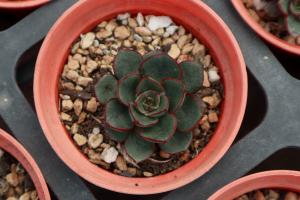Can Tea Tree Oil Kill Plantar Wart HPV?
Plantar warts are a common viral infection caused by the human papillomavirus (HPV). They typically appear on the soles of the feet and can be painful and difficult to treat. While there are numerous over-the-counter treatments available, many people are turning to natural remedies like tea tree oil to combat this stubborn virus. So, can tea tree oil kill plantar wart HPV? Let's take a deeper look.
What is Tea Tree Oil?
Tea tree oil is a natural essential oil derived from the leaves of the tea tree plant, also known as Melaleuca alternifolia. It has been used for centuries for its antibacterial, antifungal, and antiviral properties. Tea tree oil is known for its ability to fight a wide range of bacteria, viruses, and fungi, making it a popular choice for treating skin conditions like acne, eczema, and even plantar warts.
How Does Tea Tree Oil Work?
Tea tree oil works by attacking the virus that causes plantar warts. HPV thrives in warm, moist environments, like the soles of the feet. The antiviral properties of tea tree oil help to inhibit the growth and spread of the virus, allowing the body's immune system to fight off the infection. When used regularly, tea tree oil may even help to prevent future outbreaks.
How to Use Tea Tree Oil for Plantar Warts
Before applying tea tree oil to plantar warts, it is important to thoroughly clean and dry the feet. To use tea tree oil, simply apply a few drops of the oil directly to the wart using a cotton swab. You may want to cover the wart with a bandage to keep the oil in place. Repeat this process twice a day for several weeks until the wart has disappeared.
Does Tea Tree Oil Really Work?
While there is no scientific evidence to prove that tea tree oil can cure plantar warts, there is anecdotal evidence to suggest that it may be effective. Many people have reported success with using tea tree oil for plantar warts, and some studies have shown that tea tree oil can be effective against other types of warts.
Are There Any Risks?
Tea tree oil is generally considered safe when used topically. However, it can cause skin irritation, especially if used in high concentrations. It is important to dilute the oil before use and to avoid using it on open wounds or broken skin. If you experience any redness, swelling, or itching after using tea tree oil, stop use and consult a healthcare professional.
The Bottom Line
While tea tree oil may not be a surefire cure for plantar warts, it is a safe and natural alternative to traditional treatments like over-the-counter wart removers or prescription medications. If you are struggling with plantar warts and are looking for a natural remedy, consider giving tea tree oil a try. With regular use, you may be able to rid yourself of those pesky warts for good.

 how many times do yo...
how many times do yo... how many planted tre...
how many planted tre... how many pine trees ...
how many pine trees ... how many pecan trees...
how many pecan trees... how many plants comp...
how many plants comp... how many plants can ...
how many plants can ... how many plants and ...
how many plants and ... how many pepper plan...
how many pepper plan...































